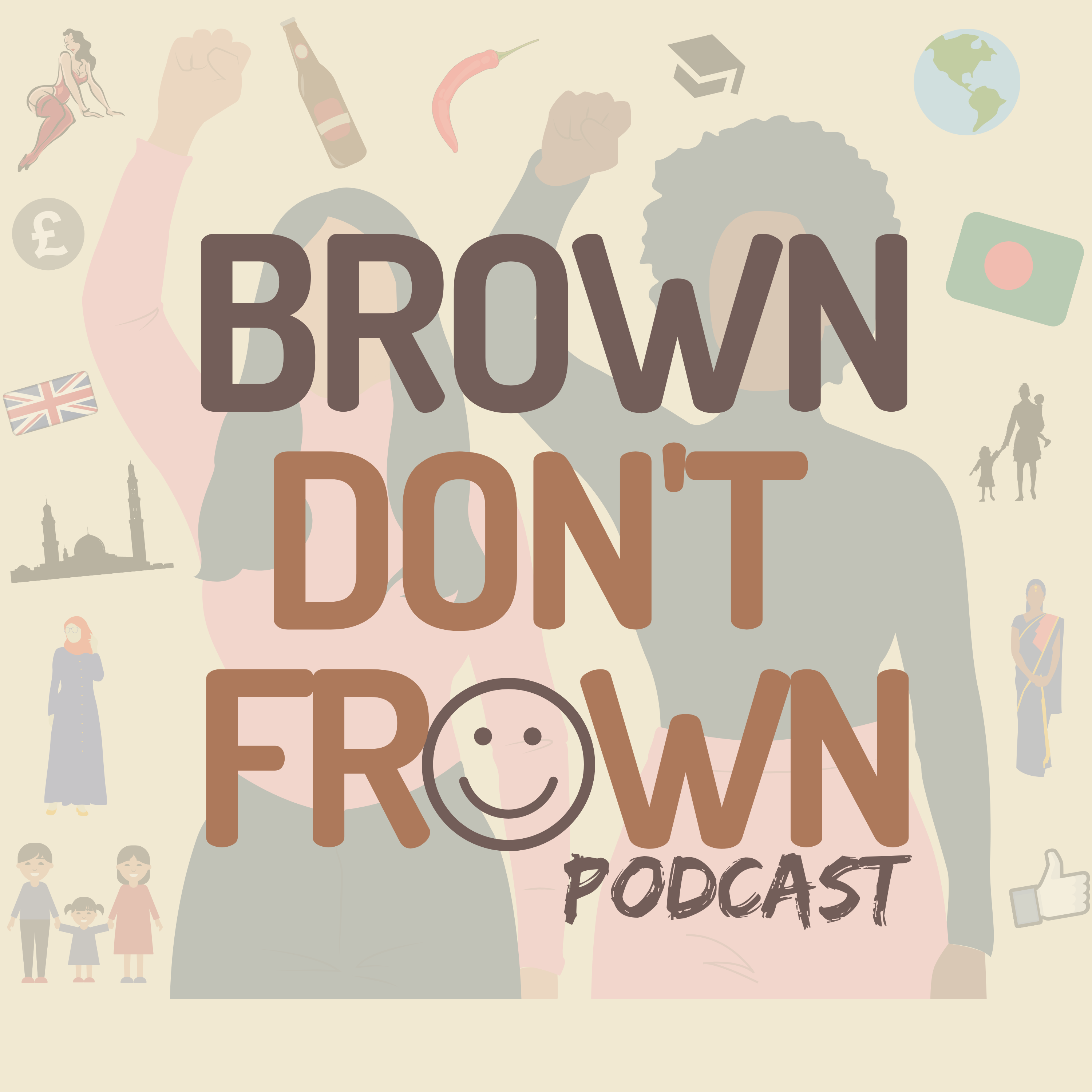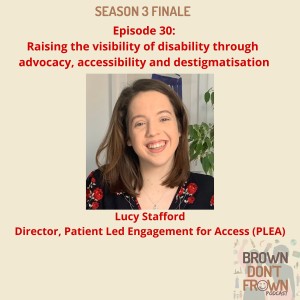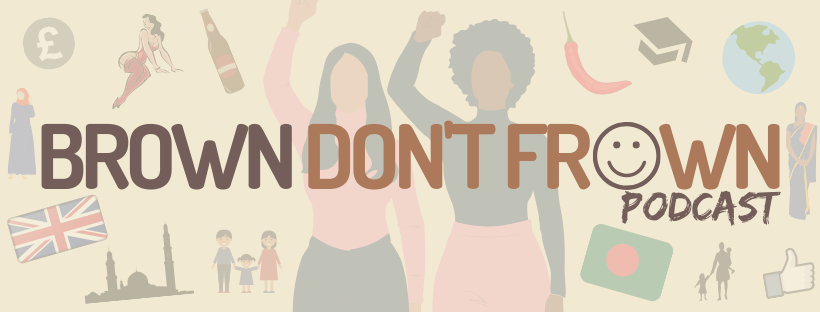
Brown Don't Frown was borne out of a personal journey with womanhood. As a British Bangladeshi, navigating mainstream Feminism often felt exclusionary to me because it didn’t seem to value the experiences or views which shaped my grandmother’s, aunts’, mother’s or friends’ lives. Through this podcast, we seek to build a more inclusive discourse, which breaks down presumptions about different cultures, and shines a positive light on the stories of underrepresented women. Featuring new guest(s) from different walks of life in each episode, Brown Don’t Frown seeks to engage ordinary women and facilitate openness towards entirely new perspectives. It hopes to spark honest and meaningful conversations about intersectional feminist themes in contemporary society with the acknowledgement that our views are shaped by our cultural, racial, religious, social and political experiences. Whether it's discussing society's preconceptions about the Hijab with a British-born Jamaican Muslim woman or examining the impact of gendered expectations on our ability to grieve on our own terms, we hope listeners finish each episode feeling more rounded than they did before. Follow us on: Instagram: https://www.instagram.com/browndontfrownpodcast/ Twitter: https://twitter.com/bdfpodcast?lang=en Facebook: https://www.facebook.com/browndontfrownpodcast LinkedIn: https://www.linkedin.com/company/browndontfrownpodcast
Episodes

Sunday Feb 14, 2021
Sunday Feb 14, 2021
“Disabled people are infantilised, sensationalised or they’re just not believed.”
We end Season 3 on a thought-provoking note and I’m pleased to welcome Lucy Stafford to the show. Lucy is the Director of Patient Led Engagement for Access (PLEA), a non-profit which advocates for access to medical cannabis through mainstream healthcare. She speaks about her experience as a long-term patient of Ehlers-Danlos syndrome, a rare, life-long genetic disorder which can cause debilitating effects. Drawing from her own experiences, she explains how we can facilitate greater accessibility for those with disabilities. As an able-bodied person, the discussion makes me confront some of my own ignorances about disability.
To cope with her long-term pain and the effects of surgery, Lucy was prescribed strong opioids for a long time, until she came across medical cannabis. She tells us about her journey with pain management and how her experience with medical cannabis has differed from taking traditional prescribed pain medication. She has become an advocate for decriminalising medical cannabis for those with serious medical conditions. She talks about her work with PLEA and a new initiative called ‘Project 21.’ As someone whose life has changed for the better from medicating with Cannabis, I ask her what she would say to someone in a similar position to herself, who might be experiencing serious pain and is looking for alternatives to opioids or surgery, but is worried about the stigma attached to cannabis.
The pandemic has accelerated remote engagement, whether working, studying or socialising, and makes participation much more accessible. We think about what that might be like post-pandemic. We end with Lucy talking about the most empowering aspects of her advocacy work so far and what she has learned from it.
You can find out more about Lucy and PLEA at:
https://www.pleacommunity.org.uk/executivecommittee/lucy
You can also reach her on Instagram: @lucystaffie and Twitter: @lucystaffie.

No comments yet. Be the first to say something!